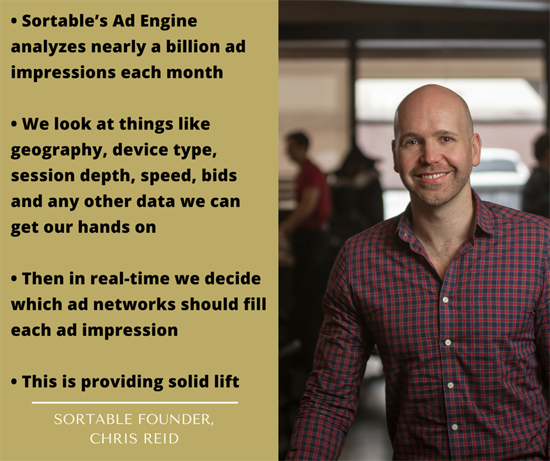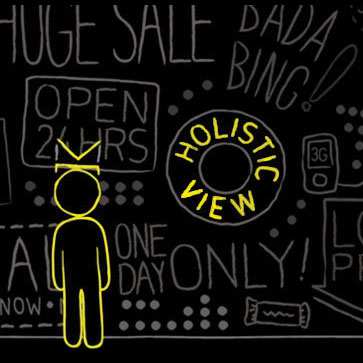Sorting Through the Digital Advertising Mess

With the popularity of ad blocking, the lack of relevance of ads, accidental clicks and other problems impacting revenue, the digital advertising industry needs help.
Owning and operating more than 20 websites, Sortable can relate to the challenges publishers have today because it's a publisher too. One of its digital properties is Snapsort.com, a website for buying cameras. Snapsort.com is part of the company's suite of recommendation websites and has served as a testing ground of sorts for Sortable's technology and to understand the pains publishers face.
Sortable's solution to some of these problems is the just-launched Sortable Ad Engine, which uses machine learning to optimize ad impressions. Here's how it works:

To understand the concept a little more, as well as the issues the advertising industry faces, Website Magazine caught up with Sortable Founder Chris Reid (pictured above).
What's are some top things wrong with the digital advertising industry today?
- Publishers are mispricing their inventory
- Impossible for publishers to mediate the 100s of revenue options available to them
- Users are un-happy (ads bog down mobile data connections, malware, intrusive)
- Too many companies fighting, no holistic solutions
How can Sortable fix some of those issues?
- Give power back to the publishers by mediating all the required relationships and ensuring they perform, work well
- Leverage a large group of publishers to ensure things that don't make sense are cleaned up
- This requires serious technology: largely big data and machine learning
How does Sortable make ads "suck" less for online publishers?
- Because publishers get control and time back we handle the horrible experience of dealing with multiple partners, pricing inventory well, negotiating, integrating, creative control, optimizations, etc.
Anything else you want to add?
- Sortable is growing super fast because we take a holistic approach to solving a publisher's problems, we're agnostic to partners and focus only on making things better for publishers, versus having a dual mandate like SSPs, Networks and Exchanges.










